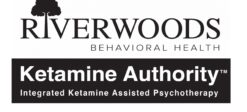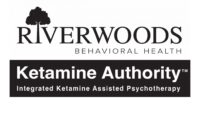
In recent years, we've seen an increasing interest in exploring less traditional avenues for alleviating the heavy burden of PTSD. Among these, ketamine, a substance known for its rapid-acting effects, has emerged as a beacon of hope for some.
We're keen to unpack the layers of evidence surrounding ketamine's potential as a treatment for PTSD, including how it operates, the outcomes of clinical studies, and what patients themselves have to say.
But as we venture into this discussion, it's crucial to bear in mind the complexities and nuances that come with such a powerful therapeutic tool. Let's explore together what makes ketamine a subject of both intrigue and caution in the realm of mental health.
Understanding PTSD and Ketamine
Before diving into the effectiveness of ketamine for PTSD, it's crucial to understand what PTSD is and how ketamine potentially interacts with this condition. PTSD, or Post-Traumatic Stress Disorder, is a mental health condition triggered by witnessing or experiencing a terrifying event. Symptoms can include flashbacks, severe anxiety, and uncontrollable thoughts about the event. It's a complex disorder, affecting people differently and requiring personalized treatment approaches.
We've come to know ketamine as a medication used in anesthesia, but it's gaining attention for its potential in treating various mental health conditions, including PTSD. Its primary function in this context isn't to sedate, but rather to influence certain pathways in the brain linked to mood and thought patterns.
We're particularly interested in how ketamine may offer rapid relief from symptoms for some individuals, a potential game-changer for those struggling with PTSD. This interest stems from ketamine's unique action on the brain, different from traditional antidepressants or therapies. It's this distinctive mechanism that we believe could unlock new avenues for treatment, providing hope for those who've found little relief with existing options. However, diving deeper into how ketamine accomplishes this requires a closer look at its interaction with the brain's pathways, a topic for another discussion.
How Ketamine Treats PTSD
To understand how ketamine treats PTSD, it's essential to delve into its unique interaction with the brain's neurotransmitter systems.
Ketamine primarily works by affecting the glutamate neurotransmitter, which plays a significant role in brain function and mental health. Unlike traditional treatments that target the serotonin system, ketamine offers a new approach by enhancing neural plasticity. This means it helps the brain form new neural connections, potentially “rewiring” the brain areas impacted by PTSD. We've seen how this can lead to rapid improvements in mood and a decrease in PTSD symptoms, offering hope to those who haven't found relief with other treatments.
Moreover, ketamine has an impact on the brain's stress response system. By modulating the hypothalamic-pituitary-adrenal (HPA) axis, which is often dysregulated in PTSD, it can reduce the physiological stress responses that are characteristic of the condition. This action not only aids in alleviating symptoms but also contributes to the stabilization of mood and improvement in overall well-being.
We're intrigued by the way ketamine fosters an environment conducive to healing and recovery. Its ability to promote neuroplasticity and modulate stress responses presents a promising avenue for those struggling with PTSD, offering a beacon of hope for many.
Clinical Studies on Ketamine's Effectiveness
Several clinical studies have demonstrated ketamine's potential as an effective treatment for PTSD, reflecting promising outcomes for patients. We've observed that when traditional treatments haven't met patients' needs, ketamine has emerged as a beacon of hope. In these studies, many participants reported significant reductions in PTSD symptoms following ketamine administration. This isn't just a fleeting improvement; for some, the benefits have persisted well beyond the initial treatment phase.
Moreover, we've noticed that ketamine doesn't just address the symptoms superficially. It seems to work by targeting the underlying processes that contribute to PTSD, offering a form of relief that's both profound and comprehensive. The rapid onset of its effects is another aspect that sets ketamine apart from other treatments. Unlike conventional options that may take weeks or even months to show results, ketamine can provide relief within hours or days.
It's crucial, however, to approach these findings with cautious optimism. While the results are encouraging, we're also mindful of the need for further research to fully understand ketamine's long-term efficacy and safety. But at this point, it's clear that ketamine represents a significant step forward in the battle against PTSD, offering hope where it's most needed.
Ketamine Treatment Protocols
How do medical professionals administer ketamine to patients with PTSD, and what protocols ensure its safe and effective use? We've seen a growing interest in using ketamine, an anesthetic and a promising antidepressant, for treating PTSD. The treatment protocol typically involves a series of low-dose intravenous (IV) infusions or nasal sprays, administered under close medical supervision.
Before starting treatment, we conduct a thorough evaluation of the patient's health to identify any potential risks or contraindications. This includes assessing their mental health history, current medications, and overall physical health. We're careful to tailor the dosage and treatment frequency to each individual's needs, aiming to maximize benefits while minimizing risks.
During each session, we monitor the patient's vital signs and mental state closely. This allows us to adjust the treatment if necessary and ensures the patient's safety throughout the process. The setting is designed to be calming and supportive, with a trained healthcare professional always on hand.
We also emphasize the importance of combining ketamine treatment with psychotherapy. This integrated approach helps address the underlying causes of PTSD, supporting long-term recovery and well-being.
Potential Side Effects and Risks
While ketamine offers promising benefits for PTSD treatment, it's important to be aware of its potential side effects and risks.
Firstly, we can't overlook the common side effects that patients may experience. These include nausea, dizziness, and a feeling of disconnection or unreality. It's essential to monitor these effects closely, as they can impact one's daily life. We also need to consider the potential for increased blood pressure and heart rate during treatment, which means it's not suitable for everyone.
Moreover, there's the risk of abuse or dependence. Although ketamine is used in a controlled medical setting, its history as a recreational drug means we must proceed with caution. We ensure thorough screening and monitoring to mitigate this risk.
Lastly, long-term effects of ketamine treatment on cognitive function and mental health are still under investigation. While we've seen promising results, we're committed to ongoing research and monitoring to ensure the safety and well-being of our patients.
Patient Experiences and Outcomes
After exploring the potential side effects and risks, let's now focus on what patients have reported about their experiences and the outcomes of ketamine treatment for PTSD. Many have shared that they've seen significant improvements in their symptoms, sometimes after just a few sessions. They've talked about a reduction in the intensity of their flashbacks, nightmares, and general anxiety levels, which has allowed them to engage more fully in their daily lives and therapies.
We've also heard from those who've struggled with PTSD for years, for whom traditional treatments hadn't made a significant impact. For them, ketamine has been a breakthrough, offering relief where there was once little hope. They've described feeling a sense of detachment from their traumatic memories, making them less painful to revisit and process.
However, it's important to note that outcomes can vary. Some patients haven't seen as drastic changes, and the long-term effects of ketamine treatment on PTSD are still being studied. But for many, the immediate improvements have been life-changing, providing a much-needed respite from the constant battle with PTSD and opening up new avenues for healing.
Frequently Asked Questions
Can Ketamine Treatment for PTSD Be Combined With Other Forms of Therapy, Such as Cognitive-Behavioral Therapy (Cbt) or Eye Movement Desensitization and Reprocessing (Emdr)?
We've been exploring whether it's possible to combine ketamine treatment for PTSD with other therapies like CBT or EMDR. It seems there's potential for these combinations to enhance treatment effectiveness.
By integrating ketamine with established psychotherapies, we're hopeful to create more robust treatment plans. This approach could offer a more comprehensive healing process, addressing both the biochemical and psychological aspects of PTSD.
We're excited about the possibilities this could unlock for those struggling with PTSD.
How Does Ketamine's Effectiveness for PTSD Compare to Traditional Antidepressants or Anxiolytics?
We're exploring how one treatment stacks up against others for managing PTSD symptoms. Specifically, we're interested in whether ketamine offers better outcomes compared to traditional antidepressants or anxiolytics.
It's a crucial question because finding the most effective therapy can significantly impact recovery. We've looked into various options, but the comparison between these treatments could shed new light on optimizing care for those suffering from PTSD.
Are There Any Long-Term Studies on the Effects of Ketamine Treatment on PTSD Symptom Recurrence Rates?
We've been wondering if there have been any long-term studies focusing on whether symptoms of PTSD return after treatment with ketamine.
It's an important question because it touches on the sustainability of the treatment's benefits.
We're really looking for evidence that can guide us on whether it's a viable long-term solution or if it's more of a temporary fix.
It'd be great to find some solid, long-term data on this.
How Does the Cost of Ketamine Treatment for PTSD Compare to Other Treatment Options, and Is It Covered by Insurance Plans?
We're looking into how the cost of ketamine treatment for PTSD stacks up against other options and whether insurance plans usually cover it. It's important for us to understand the financial aspect of this treatment to make informed decisions.
While some treatments might be more accessible, we need to weigh their effectiveness and cost. We're hoping to find out if ketamine offers a viable, affordable option for those struggling with PTSD.
Are There Specific Lifestyle Changes or Supportive Therapies That Can Enhance the Effectiveness of Ketamine Treatment for Ptsd?
We've found that incorporating specific lifestyle changes and supportive therapies can really boost the benefits of ketamine treatment.
Embracing a healthy diet, regular exercise, and mindfulness practices like meditation has shown to make a difference.
Additionally, therapies such as cognitive-behavioral therapy (CBT) or eye movement desensitization and reprocessing (EMDR) alongside ketamine treatments can significantly enhance outcomes.
It's all about creating a holistic approach to support the healing process.
Conclusion
In conclusion, we've seen that ketamine offers a promising approach to treating PTSD, with clinical studies backing its effectiveness. Our exploration reveals that through specific treatment protocols, ketamine can significantly alleviate symptoms.
However, it's crucial to weigh the potential side effects and risks. Patient experiences further underscore the transformative impact ketamine can have, making it a valuable option for those struggling with PTSD.
It's a breakthrough that's reshaping our approach to mental health treatment.

